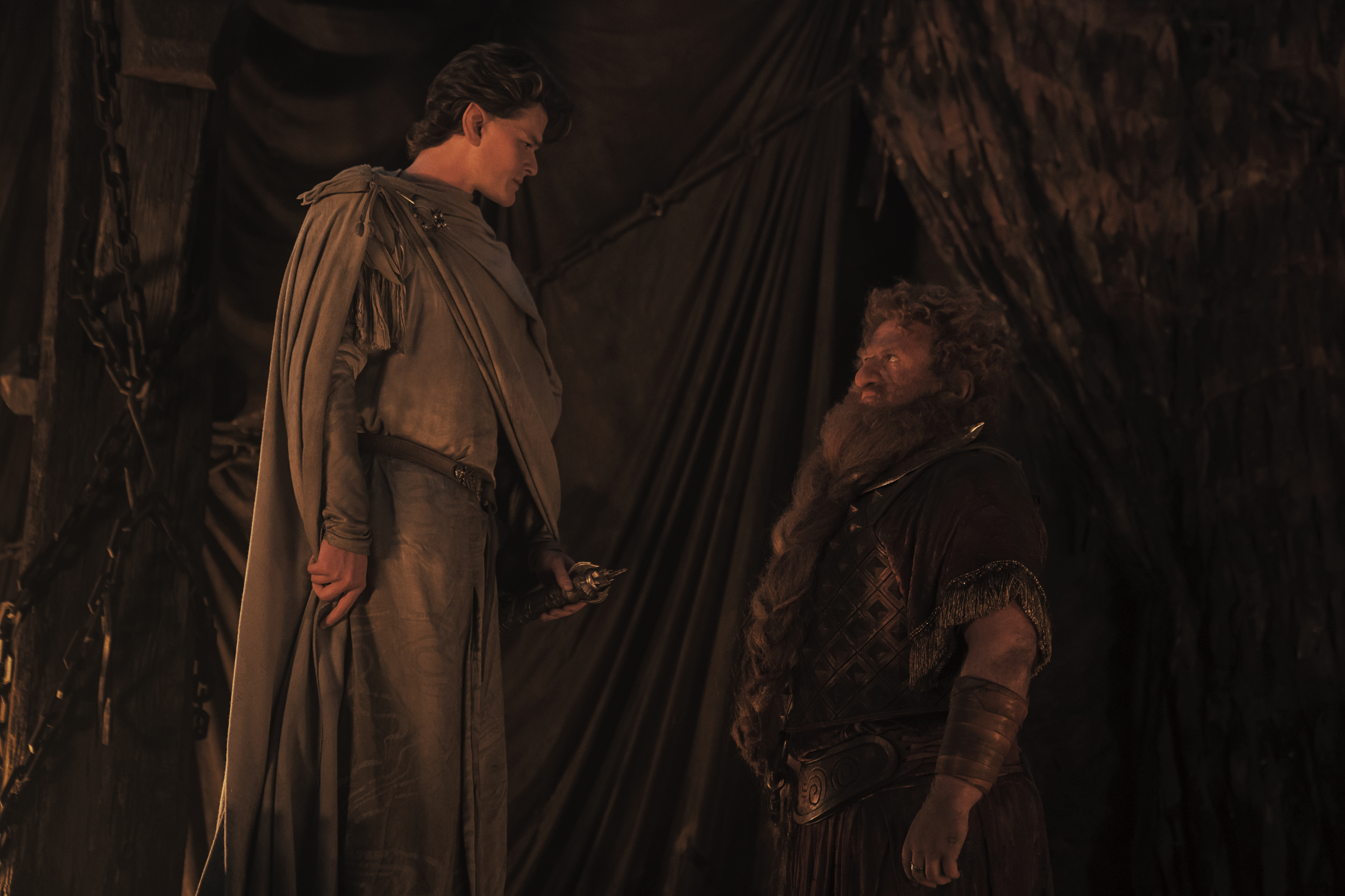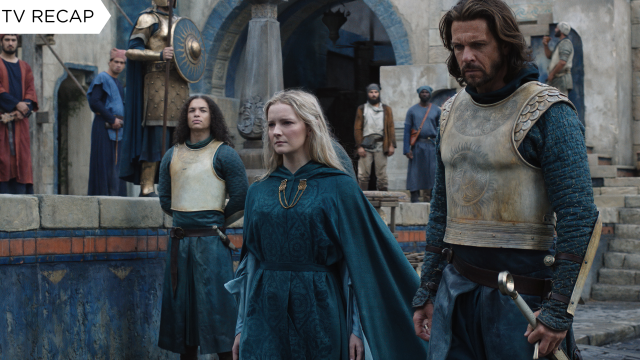Last week’s Rings of Power showed just how much strife can come from old prejudices and mistrust. This week’s shows just how toxic keeping secrets from those who should be allies can be — and sets the stage for the series to really get going as its myriad heroes realise it’s better to stand together in honesty.

“The Great Wave” feels almost akin to a two-parter in conversation with last week’s “Adar” — if that episode was all about reminding us of the distrust put between the peoples of Middle-earth since the war with Morgoth, this episode is about challenging them to the point that they can be overcome. It’s a story of secrets being kept from each facet of the story — Númenor’s regent Miriel and her visions of the island’s eventual, inevitable doom; Pharazôn’s own sowing of mistrust about the Elves and their lingering influence; and in two plotlines we finally revist this episode, Bronwyn’s son Theo and the mysterious blade he’s keeping hidden from his fellow Southland refugees, and Durin and Elrond, as the former tries to keep secret a mysterious new mine his people have opened up. For the most part, if last week was telling us that there are frictions between these myriad peoples, internally and externally, this week is about being beholden to the more personal friction that comes when people try to hide things from one another, and the toll it takes on a personal and societal level.

Three big secrets sit at the heart of “The Great Wave.” As Galadriel’s presence in the Númenorean court becomes an increasing headache for Miriel, her attempts to exile the elf back to Middle-earth — with none of the support she wants to gain to take the fight to the orcs in the Southlands — it’s eventually revealed that Miriel’s father, the actual king of Númenor, is being kept hidden away in ailing health, as he advocated for reforging Númenor’s links to the Elves, and that she has been haunted by a Palantir’s vision of the island’s doom ever since she stepped in as regent. Over in the Southlands, meanwhile, the captured Arondir discovers that the Orcs are not lead by Sauron directly, but one of his own: Adar is an elf, exposing the admittance that even the Valar’s closest children can fall under the thrall of evil. Things are a little less dire in Khazad-dûm, but no less world-changing: Durin’s big secret he’s trying to keep from Elrond, even as the latter makes strides to patch up their friendship, is that the Dwarfs have discovered the existence of the lighter-than-silk, stronger-than-steel ore of Mithril.
It’s the airing out of these secrets across the episode that allows each of Rings of Power’s disparate narratives to finally begin moving forward with a sense of urgency. In Khazad-dûm, Elrond and Durin reforge their damaged friendship, even as the secret of Mithril still harbours some fears of ill-will between Elves and Dwarfs, and work on Celebrimbor’s forge begins in earnest. In learning just how dire the threat in the Southlands is, Arondir is steeled in his defence of Bronwyn and the rest of the village surivors, now holed up in his former watchkeep. And perhaps most crucially of all — for Middle-earth and the audience — just as she is about to push Galadriel away for good, sentencing her to an armed escort back to her people, Miriel falters, and decides to take the step to ally with the Elven commander and muster an army to ride with her to the Southlands.

Even as slow as The Rings of Power has been, at this halfway point things are starting to finally pick up — almost, in a weird way, like we’re operating on Elf time again instead of human time, for all the parallels the show has made about eons feel like instants to the long-lived kind, while the rest of us have to mark it at our slow and steady pace. But at the very least this first half of the series has used that dwelled-upon time for a fundamentally Tolkienesque message. It’s an obvious one, but an important message to preach, and one that is forever at the heart of Lord of the Rings: the need to be honest with each other, to look past prejudice and hope in a better, unified tomorrow even in dark times. But for all “The Great Wave” does to cast secrets out into the light, some still linger to represent that sense of darkness — particularly Theo, who discovers there’s a fellow refugee at the watchtower who not only knows he’s hiding the blood-powered blade secret, but that it marks him, as he is an agent of Sauron himself.
It’s a reminder that evil still lingers in the shadow of Rings of Power’s narrative — and now’s the time for the show to finally begin confronting that evil, to bring it out into the light shone by allies finally standing together.
Want more Gizmodo news? Check out when to expect the latest Marvel and Star Wars releases, what’s next for the DC Universe on film and TV, and everything you need to know about House of the Dragon and Lord of the Rings: The Rings of Power.
